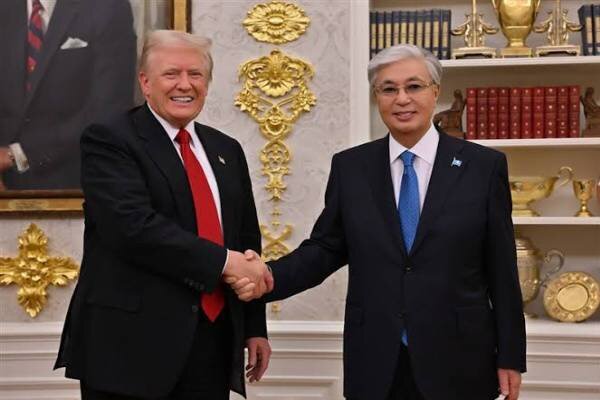Why Are Kazakhs Aiding the Collapse of Israel Regime’s International Isolation?

webangah News Agency, International Desk: Amid diplomatic uproar and endless speculation surrounding the new alignment of powers in the Middle East, an unexpected surprise from Central Asia has upended all calculations. While attention was fixed on Riyadh, Damascus, and Jakarta as potential next members in the sequence of the Abraham Accords, it was Astana that disrupted regional strategic inertia by announcing its readiness to join this alliance. This shift was more than news-it was a declaration promptly interpreted by Israeli analysts such as Amit Segal not as ordinary normalization but as Kazakhstan’s formal entry into an anti-Iranian security architecture.
Kazakhstan’s Gamble: Breaking Free from Moscow and Beijing at the Cost of Joining the Western Club
Kazakhstan’s decision to accept the Abraham Accords is neither symbolic nor reactive; it is indeed a calculated gamble with multiple objectives. through this move, Astana seeks to sever conventional dependencies on Moscow’s and Beijing’s gravitational pull. the accords are not seen simply as goals but rather *tools* for attracting Western capital,achieving technological leaps in strategic mineral industries,and most importantly securing a “security insurance” policy from Washington.
Former President Donald Trump hailed this choice by portraying Astana not just as a new member but as a “strategic bridgehead” to extend U.S. influence into Russia’s and China’s backyard.What outwardly appears to be an effort promoting religious tolerance or breaking Israel’s isolation conceals a bold geopolitical maneuver by Kazakhstan aiming to redefine its role within the emerging global order-a move critics denounce as trading off complicity for whitewashing Israel’s crimes in Gaza.
Breaking Israel’s Diplomatic Isolation Wall
For Israel-immersed in global isolation following two years of relentless violence in Gaza and Lebanon-this development acts like a vital lifeline. The accession of a major Muslim-majority country from Central Asia represents more than diplomatic success; it becomes powerful propaganda for rehabilitating its international image while fabricating false acceptance narratives worldwide. This advantage also allows Trump’s governance to revive its first-term foreign policy legacy by showcasing the Abraham Accords as an exclusive “diplomatic achievement.”
In practice, this addition may cause no significant changes in existing relations; however, symbolically it facilitates tel Aviv’s access to Eurasian resources while strengthening Astana’s anti-Iran front. From Palestinian resistance perspectives tho, this action embodies nothing but “moral bankruptcy,” rewarding perpetrators with shameful concessions were Kazakhstan sells out its own dignity before gaining any tangible benefits-an ignominious deal aiding an increasingly isolated regime.
The Bottom Line
The world is rapidly moving beyond ”strategic ambiguity” into an era marked by “emerging power poles.” Actors like Kazakhstan are making high-stakes moves aimed at evading their roles as dependent countries toward acquiring recognition as independent powers within this reshaped global framework. Astana joining the Abraham Accords loudly signals its aspiration to enter these newly formed circles.
In these circumstances, Tehran’s response lies neither in passivity nor emotional reactions but within crafting a doctrine of “strategic entanglement.” Iran should avoid provocations while swiftly developing dense networks of reciprocal economic, transit, and energy ties with Kazakhstan-woven so tightly that any opposed pivot by Astana would incur substantial costs for itself.This bright strategy combined with full security awareness represents Tehran’s sole long-term means of containing this neighbor and managing such high-risk gambles.
The experience with both aggressive or passive policies toward states expanding ties with Israel has shown that threatening national interests through confrontations or escalating tension only leads them onto dangerous paths undermining those interests further.given historical lessons learned carefully calibrated policies must be adopted by Iranian officials aiming both at managing relations with kazakhstan effectively and preventing obstructionist attempts orchestrated by Israel.


